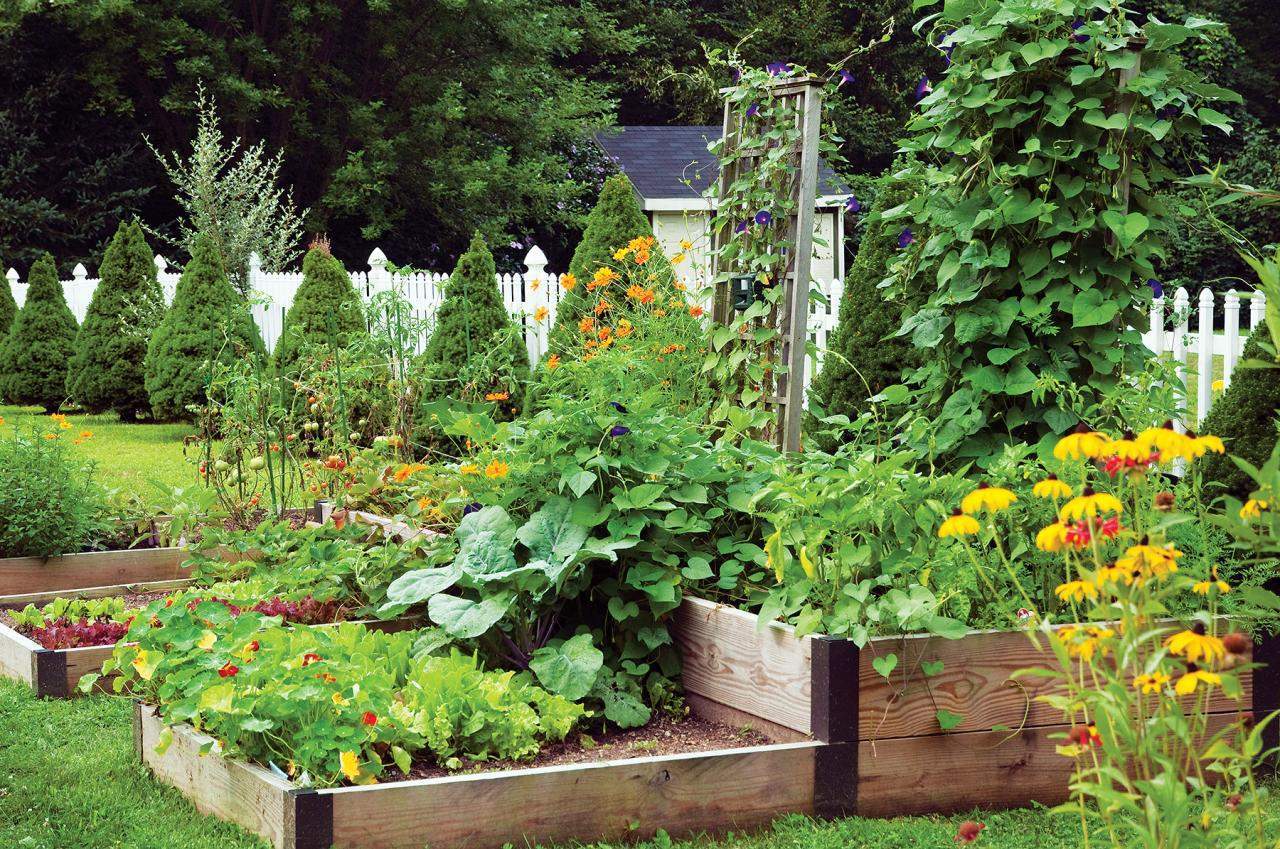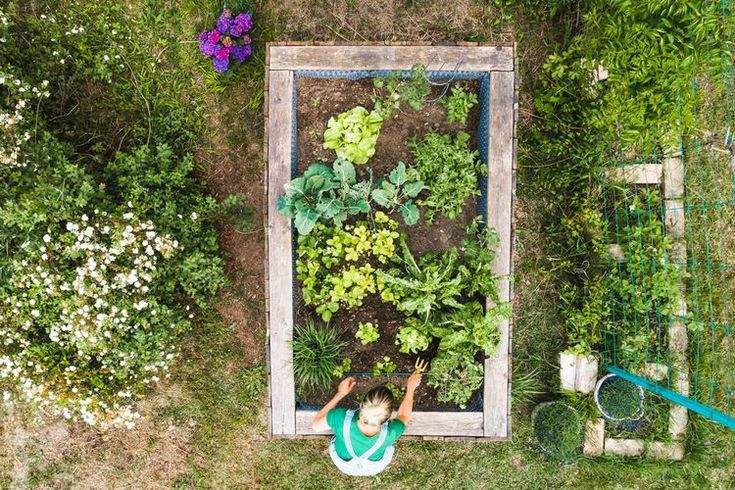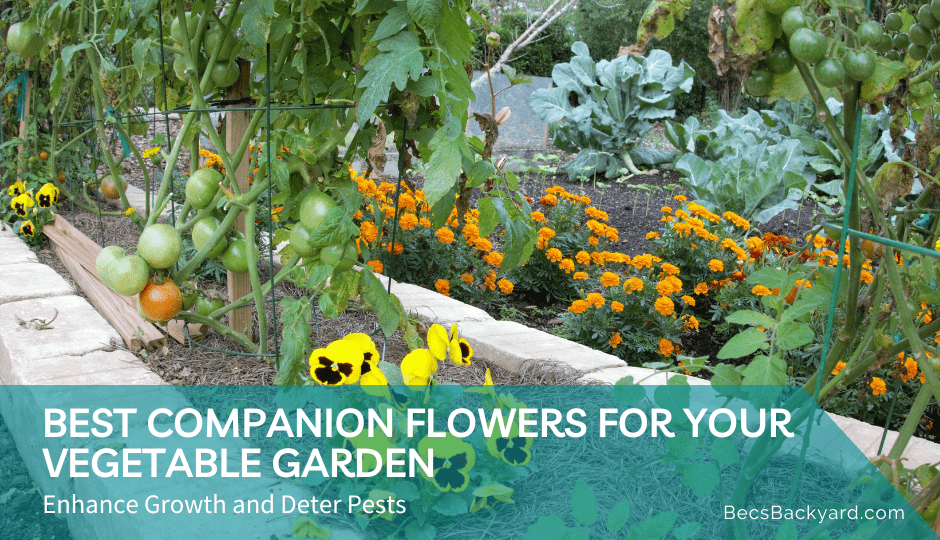6 Best Companion Plants for a Thriving Vegetable Garden sets the stage for a fruitful discussion on how strategic plant pairings can lead to a bountiful harvest, uncovering the secrets of successful gardening through companion planting.
Exploring the symbiotic relationships between different plants and their benefits, this guide delves into the world of companion planting to enhance the health and productivity of your vegetable garden.
Benefits of Companion Planting
Companion planting is a gardening practice where different plants are grown near each other to provide mutual benefits. This age-old technique is based on the idea that certain plants can help each other thrive by attracting beneficial insects, repelling pests, and enhancing soil fertility.
Enhanced Growth and Nutrient Absorption
Companion plants can work together to improve soil quality and nutrient uptake. For example, nitrogen-fixing plants like legumes can help enrich the soil by converting nitrogen from the air into a form that other plants can use. This promotes healthier growth and higher yields in the vegetable garden.
Natural Pest Control
Certain companion plants have the ability to repel pests or attract beneficial insects that can help control pest populations. For instance, planting marigolds near vegetables can deter nematodes, while attracting ladybugs that feed on aphids. This natural pest control method reduces the need for harmful chemical pesticides.
Weed Suppression
Companion plants can also help suppress weeds by shading the soil and preventing weed seeds from germinating. Plants like ground cover crops or dense foliage plants create a natural barrier that inhibits weed growth, reducing the time and effort needed for manual weeding.
Improved Pollination
Some companion plants attract pollinators like bees and butterflies, which are essential for the pollination of vegetable crops. By including flowers such as sunflowers or lavender in the garden, you can increase pollinator activity, leading to better fruit set and higher yields for your vegetables.
Enhanced Biodiversity
Companion planting promotes biodiversity in the garden, creating a more resilient ecosystem. By diversifying plant species and encouraging beneficial interactions between plants, you can improve overall plant health and reduce the risk of crop failure due to pests or diseases.
Selection Criteria for Companion Plants

When selecting companion plants for your vegetable garden, it is essential to consider various factors to ensure a thriving and harmonious environment for your crops. One crucial aspect to focus on is choosing plants that complement each other in terms of their nutrient needs and growth habits. This will help maximize the overall health and productivity of your garden.
Identifying Plants with Complementary Nutrient Needs
When selecting companion plants, it is beneficial to choose species that have different nutrient requirements. For example, planting nitrogen-fixing legumes like beans or peas alongside heavy feeders such as tomatoes or corn can help balance the nutrient levels in the soil. This symbiotic relationship between plants can improve soil fertility and overall plant health.
- Legumes like beans and peas add nitrogen to the soil, benefiting nitrogen-demanding crops.
- Plants with shallow roots, like lettuce, can be grown alongside deep-rooted vegetables, such as carrots, to prevent competition for nutrients.
- Herbs like basil and dill can attract beneficial insects that prey on pests, providing natural pest control for your garden.
Importance of Symbiotic Relationships for Companion Planting
Choosing plants that have symbiotic relationships can enhance the health and growth of your vegetable garden. For example, planting aromatic herbs like rosemary or sage near susceptible crops like cabbage or broccoli can help deter pests with their strong scents. Additionally, intercropping plants with different heights or growth habits can create a diverse ecosystem that supports beneficial insects and improves pollination.
- Marigolds are known to repel nematodes in the soil, making them an excellent companion for many vegetable crops.
- Planting tall sunflowers near climbing beans can provide support for the beans while creating shade for heat-sensitive plants beneath them.
- Companion planting can also help improve soil structure, reduce water evaporation, and enhance overall biodiversity in your garden.
Best Companion Plants for Tomatoes
Tomatoes are a popular vegetable in many home gardens, and planting them with the right companions can help improve their growth, flavor, and overall health. Here are some of the best companion plants for tomatoes that you can consider adding to your garden:
1. Basil
Basil is a great companion plant for tomatoes as it can help improve their flavor and repel pests like mosquitoes and flies. Planting basil near tomatoes can also enhance their growth and yield.
2. Marigolds, 6 Best Companion Plants for a Thriving Vegetable Garden
Marigolds are known for their ability to deter pests such as nematodes, whiteflies, and aphids. By planting marigolds around your tomato plants, you can help protect them from these harmful insects.
3. Nasturtiums
Nasturtiums are not only beautiful flowers to have in your garden, but they also act as a natural repellent for pests like whiteflies, squash bugs, and aphids. Planting nasturtiums near your tomatoes can help keep these pests at bay.
4. Borage
Borage is another excellent companion plant for tomatoes as it can attract beneficial insects like bees and wasps, which can help pollinate the tomato flowers. Additionally, borage can improve the overall health of the soil when planted near tomatoes.
5. Chives
Chives are great for deterring pests like aphids and spider mites, making them an ideal companion plant for tomatoes. They can also enhance the flavor of tomatoes when planted nearby.
6. Carrots
Carrots are known to complement tomatoes well in the garden. The deep roots of carrots can help loosen the soil, making it easier for tomato plants to grow and access nutrients. This combination can result in healthier and more robust tomato plants.
Best Companion Plants for Peppers: 6 Best Companion Plants For A Thriving Vegetable Garden

Companion planting is a beneficial strategy in vegetable gardening that involves planting different crops together to enhance growth, repel pests, and improve overall yields. When it comes to peppers, there are specific companion plants that can help support their growth and protect them from common pests.Peppers thrive when planted alongside certain companion plants that provide them with the right conditions and protection.
These companions can help deter pests that may harm pepper plants and improve the overall health of your vegetable garden.
Suitable Companion Plants for Peppers
- 1. Basil: Planting basil near pepper plants can improve the flavor of peppers and help repel pests like aphids and spider mites.
- 2. Marigolds: Marigolds are known for their pest-repelling properties and can deter nematodes, beetles, and other harmful insects that affect pepper plants.
- 3. Onions: Onions can help deter pests like aphids and caterpillars that commonly attack pepper plants. They also provide a natural barrier against pests.
- 4. Nasturtiums: Nasturtiums attract beneficial insects like predatory bugs that feed on pests, thus protecting pepper plants from harmful insects.
Best Companion Plants for Cucumbers
Planting cucumbers alongside compatible companion plants can help improve their growth, deter pests, and enhance the overall health of your vegetable garden. Let’s explore some of the best companion plants that work well with cucumbers and the benefits they bring to your garden.
Companion Plants for Cucumbers:
- Corn: Planting corn alongside cucumbers can provide natural support for the cucumber vines to climb. Additionally, corn acts as a windbreak, protecting cucumber plants from strong gusts that can damage them.
- Nasturtiums: Nasturtiums are known to repel cucumber beetles, which can be harmful to cucumber plants. The vibrant flowers of nasturtiums also attract pollinators, helping in the pollination process of cucumber flowers.
- Radishes: Radishes have a symbiotic relationship with cucumbers, as they help deter cucumber beetles and other pests. The quick growth of radishes can also act as a natural ground cover, shading the soil and retaining moisture for cucumber plants.
- Beans: Planting beans near cucumbers provides a natural trellis for cucumber vines to climb. Beans are also nitrogen-fixing plants, enriching the soil with nutrients that benefit cucumber growth.
- Dill: Dill is a great companion plant for cucumbers as it attracts beneficial insects like ladybugs and lacewings, which feed on common cucumber pests such as aphids. Dill also adds a pleasant aroma to the garden.
Best Companion Plants for Squash

Companion planting is a great way to maximize the health and yield of your squash plants by strategically placing beneficial companion plants nearby. These companion plants can help deter pests, improve soil quality, and enhance the overall growth of your squash.
Companion Plants for Squash:
- Zucchini: Zucchini is a great companion plant for squash as they belong to the same family and have similar growing requirements. They can help attract pollinators and provide shade for each other.
- Nasturtium: Nasturtium is a beautiful flowering plant that can help repel squash bugs and beetles, which are common pests that attack squash plants. It also adds a pop of color to your garden.
- Marigold: Marigolds are known for their pest-repelling properties and can help keep away harmful nematodes and other insects that can damage squash plants. They also attract beneficial insects like ladybugs.
- Borage: Borage is a herb that attracts pollinators like bees, which are essential for the successful pollination of squash plants. It also helps improve soil quality with its deep root system.
- Radishes: Radishes are fast-growing plants that can be planted as a trap crop to distract pests like cucumber beetles away from your squash plants. They also help break up compacted soil.
Final Thoughts
In conclusion, the 6 Best Companion Plants for a Thriving Vegetable Garden offer a roadmap to creating a vibrant and flourishing garden ecosystem, where plants work together harmoniously to ensure optimal growth and protection from pests. Embrace the power of companion planting and watch your vegetable garden thrive like never before.




